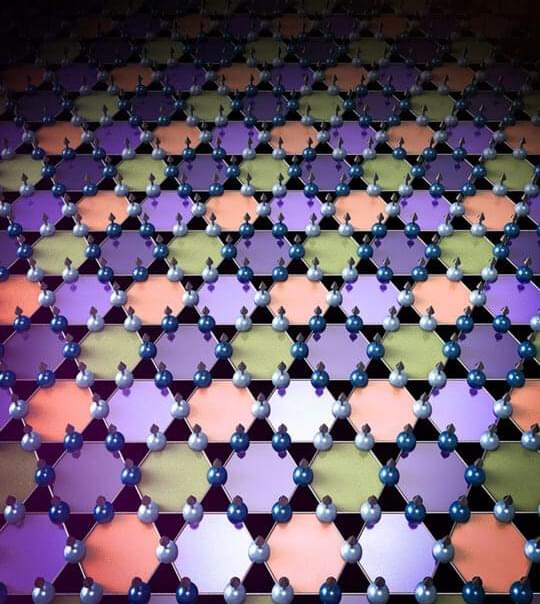Physicists have discovered a material in which atoms are arranged in a way that so frustrates the movement of electrons that they engage in a collective dance where their electronic and magnetic natures appear to both compete and cooperate in unexpected ways.
Led by Rice University physicists, the research was published online today in Nature. In experiments at Rice, Oak Ridge National Laboratory (ORNL), SLAC National Accelerator Laboratory, Lawrence Berkeley National Laboratory (LBNL), the University of Washington (UW), Princeton University and the University of California, Berkeley, researchers studied pure iron-germanium crystals and discovered standing waves of fluid electrons appeared spontaneously within the crystals when they were cooled to a critically low temperature. Intriguingly, the charge density waves arose while the material was in a magnetic state, to which it had transitioned at a higher temperature.
“A charge density wave typically occurs in materials that have no magnetism,” said study co-corresponding author Pengcheng Dai of Rice. “Materials that have both a charge density wave and magnetism are actually rare. Even more rare are those where the charge density wave and magnetism ‘talk’ to each other, as they appear to be doing in this case.”









Comments are closed.